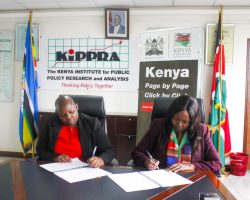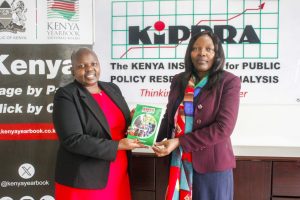
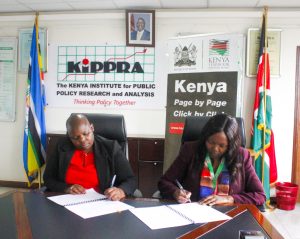
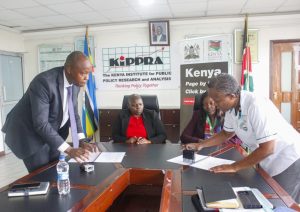
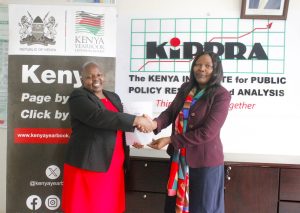
Kenya Yearbook Editorial Board led by CEO Lilian Kimeto and KIPPRA Ag. Executive Director, Dr Eldah Onsomu have signed an MoU to boost policy research and development communication.
Under the agreement, KYEB and KIPPRA will work together on capacity building, content development and resource mobilization to support their respective mandates. The partnership will also facilitate knowledge-sharing initiatives, including the dissemination of KIPPRA’s research outputs.
A central focus of the collaboration is set to amplify the Bottom-up Economic Transformation Agenda (BETA) and effectively communicate the Medium-Term Plan IV (MTP IV), ensuring that policy insights reach a broader audience. By combining KYEB’s expertise in content production and national documentation with KIPPRA’s research capabilities, the partnership seeks to enhance the visibility and impact of evidence-based development initiatives.
The signing ceremony was attended by representatives from both institutions, underscoring their shared commitment to fostering evidence-based communication and strengthening Kenya’s policy landscape. This alliance marks a significant step toward coordinated, data-driven advocacy for sustainable development.
